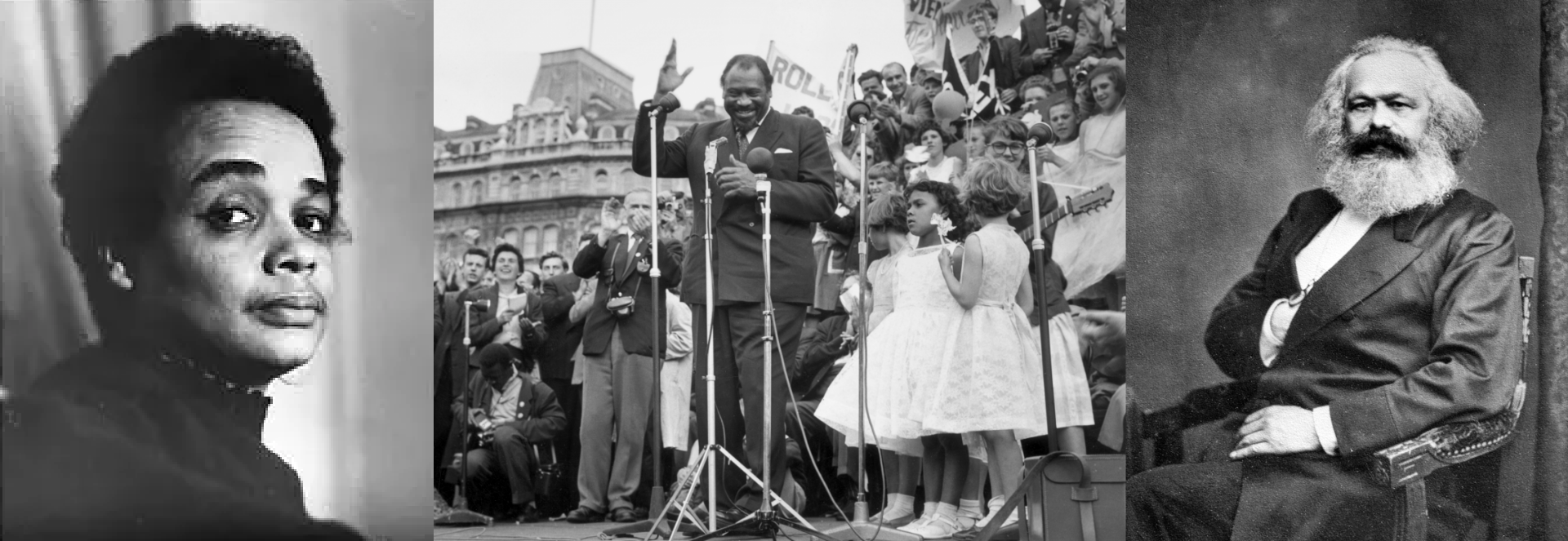It would seem useful to have some general criteria in mind in guiding us when considering participation in electoral campaigns. These criteria would seem to apply whether the office is President of the United States or school board member.
The criteria enumerated below, which are not meant to be exhaustive should not be considered to be preconditions for support of particular candidates but optimum goals in orienting our electoral work.
We want to elect progressive people to positions of power. We believe the electoral arena is an important one in working for fundamental change in our society. We need real tribunes of the people. The many ways in which such tribunes can further the people’s cause through the holding of office need not be spelled out here, since our members and friends are firmly aware of the importance of electoral work.
It is not easy to find people who are prepared to put themselves at the service of a people’s campaign, who are prepared to make the necessary sacrifices, are incorruptible and place the interests of the people ahead of their own personal ambition. But as important as it is to find such people and to support them, people who have a progressive program, this is still not sufficient. For we need not only progressive candidates, but progressive candidates who will hold themselves accountable to their constituencies. Not only this. They should actively work before and during an election campaign to help build a base, a genuinely grassroots base, to which they will be accountable. Thus, they should work to build controls over their own freedom of action, which while inhibiting their personal power, in the end run gives them real power as people’s representatives.
Election considerations
We want to present a serious challenge to the representatives of the status quo in the electoral arena. But winning elections cannot be our overriding objective, not if it subverts other important aims of our electoral work. Some of these aims are:
- Every election should be an educational process, a process which enlightens people as to the nature of the issues directly being addressed (education, in the case of a school board election), but which also shows the connections with other issues, and which ties everything to the fundamental problems of our society. Such an educational process should identify the forces responsible for the problems faced by the people.
- Every election should be used to stimulate the activity of grassroots people, not only in terms of working for a particular candidate but also by stimulating organizations to intensify their grassroots work in their communities. We do not want election campaigns to cause activism around specific issues to grind to a halt, but have the election contribute to building the membership of grassroots organizations and enhancing the effectiveness of their work.
- Electoral campaigns should be conducted so as to encourage the people’s belief in themselves, in their capacity to govern. It should discourage servile attitudes toward politicians and attack the notion that we need a political messiah. Of course, this does not deprecate the need for talented political leaders who hold themselves accountable to the people and subject themselves to popular control.
- We want to raise the level of unity among the people, fighting racism as the most serious obstacle to that unity, and the most vicious weapon used by the people’s oppressors, and fighting sexism, and all other forms of bigotry that render the people helpless to deal with their real problems.
- We want to wage a campaign that is at the same time a leadership training program, developing the leadership abilities of people at the grassroots level.
- We want to wage a campaign that exposes not only the open enemies of the people, but those who pretend to be the people’s friends and who, in reality, are as much afraid of people’s power as the dyed-in-the wool reactionaries.
We want an election campaign to leave a permanent legacy of an enhanced base of people’s power through a higher level of political consciousness and through increased strength of grassroots organizations.





